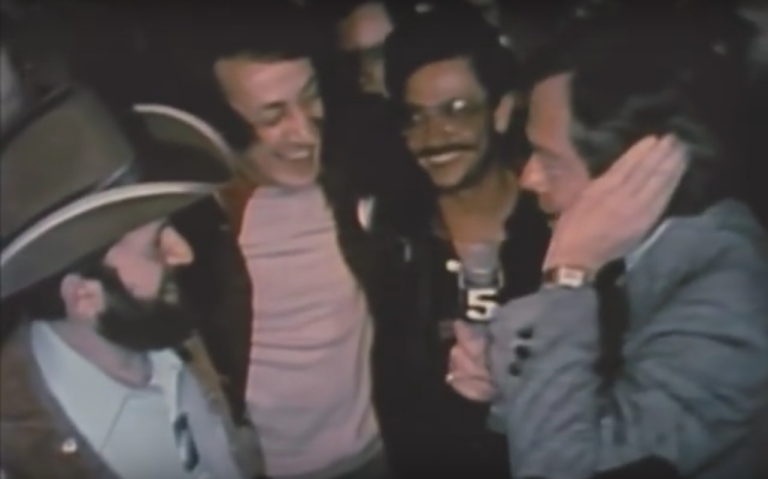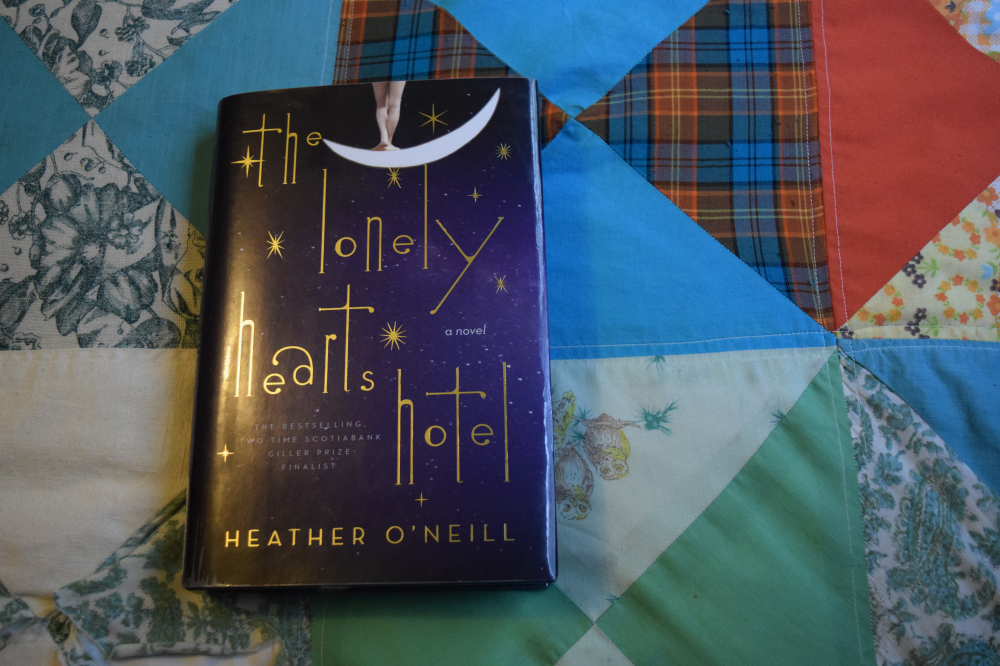Dir. Rob Epstein.

The dirty little secret of The Times of Harvey Milk is that its subject, who was killed in cold blood in 1978 at age forty-eight, probably would not have seen fifty-eight anyway. In 1984, when this film was released, people had learned the word “AIDS” and scientists in France and the United States had more or less figured out what the virus was doing. In a chilling coincidence, Bill Kraus, the political activist and Congressional aide interviewed for the film, was diagnosed with AIDS in the same month that The Times of Harvey Milk was released. It has always taken profound courage to speak up in America about the cause which is most simply, if a touch broadly, called “gay rights.” To make Harvey Milk a hero of gay rights when AIDS – a disease which the straight community saw as a plague specifically for gays – became visible to average people, was bold and necessary. There’s a lot of talk, a lot of it esoteric, about what representation is and what it should look like in an artistic endeavor. The Times of Harvey Milk is about a gay man who was the biggest personal symbol of gay political rights in the country. It was directed by a gay men, narrated by a gay man, and primarily (though not exclusively) featured gay and lesbian and queer people in its interviews. This is what representation looks like at its best; it allows people to tell stories which reflect themselves, the people like them, and their concerns. Representation isn’t effective when it’s a question of “Are there enough black people in Girls?” but it is when it asks “How many shows about bourgeois whites do we need on television before enough’s enough?” The Times of Harvey Milk is proof that if producers and execs can make space for stories about people outside the mainstream alphabet soup of straight white Christian America, the rewards are so great.
In comparison to the colorful story that Randy Shilts tells in The Mayor of Castro Street and the exciting, engaging Milk from Gus Van Sant and Dustin Lance Black, The Times of Harvey Milk is almost low-key. Epstein interviews his cast in what look to be a series of tasteful and clean living rooms, and everyone is dressed in clothing which wouldn’t look out of place in any office in America. There are a few tears here and there, but by and large people mostly speak in their indoor voices and with the detachment of memory. Even Fierstein, who’s probably best known to people as Edna Turnblad (or, I dunno, as Jeff Goldblum’s boss in Independence Day if that’s where your interests lie), provides a solemn, nearly austere tone in his own voice. There’s a restraint throughout The Times of Harvey Milk, an unwillingness to resort to histrionics to hammer home a point. No one sits there and tells us that Harvey could have been president someday; instead, their reasonableness helps to emphasize the truth of the events. The film uses those talking heads as a counterpoint for the drama in the archive footage.
Twice, we see Dianne Feinstein announce to a crowd that George Moscone and Harvey Milk were shot and killed, and that the suspect was Dan White. There’s the obvious drama of the Prop 6 fight, and Milk winning election after years of failures. The star of the archive footage is Dan White. We can’t help projecting out as we watch Moscone or Milk, knowing that they only have months to live while people interview them or while happy pictures are taken or as Milk shows the camera that marvelously planted dog poo on his shoe. The archival footage of them, even in moments of laughter or triumph, are loaded with the sadness of knowing how badly this will end. Harvey Milk laughs in slow motion after having finally won an election; he waves to the crowd from the top of a car, clearly loving every moment of the cheers which are for him and for what he represents. But watching Dan White is especially frightening as he schmoozes his way through interviews and beams from a photo of the new supervisors elected in ’77. To a certain audience which finds solace in cheery white bread folks who care about family and public service, the idea of coming together over a softball game – as White suggests to a reporter as they walk through his 8th District – he looks like a dream come true. He goes into a store during an interview and practically drags a woman who helped him get elected into the shot. In the moment, it doubtless played as a grateful, funny guy shining some light on the little people; less than a year later, that sequence is nightmarish. His strong will is on display, his inability to hear the word “no,” his relentlessness. White turned thirty-two during his first term; he is vibrant mostly because he is so young. He was a bad politician – according to Randy Shilts, the author of The Mayor of Castro Street, from the get-go he failed to understand the push and pull of city politics the way someone like Milk did – but he looked the part of an energetic reformer, and The Times of Harvey Milk lets us recognize a sort of optimism in White. The tragedy of the film is firmly the tragedy of Harvey Milk (and, as Sally Gearhart notes in one segment, George Moscone); none of that stops Dan White from being Macbeth without the catharsis of “behold, where stands/The usurper’s cursed head.”
From the witnesses to Milk’s career who were interviewed, one of the people who stands out is Jim Elliot, a straight union man. All of the people interviewed in the film are honest, but Elliot stands out because no one else has anything to confess to. Elliot is very blunt about how his initial reaction to Milk was a homophobic one, and there are a few low-grade slurs (he stays away from “faggot”) he uses to describe his thought process during those early interactions. It didn’t take until the ’80s for Elliot to recognize he was wrong for thinking the way he did – Elliot mentions a beer boycott that Milk managed to pull off as a seriously impressive piece of politicking – but it does anecdotally prove a point of Milk’s doctrine: you can’t change people’s minds from inside the closet. In his tape-recorded statement to be played in the event of his assassination, Milk wishes that every gay lawyer, judge, bureaucrat, etc. would come out.
Milk: Stand up. Let the world know. That would do more to end prejudice overnight than anything I can imagine.
Defeating Prop 6 is not made into a miracle in The Times of Harvey Milk so much as it is shown to be an all-out effort in much the same way any other election season issue is. People go onto the streets and give out literature about what Prop 6 would do; archive footage shows one older couple (who have accidentally mixed it up with a different proposition) look a little horrified at what might happen if Prop 6 happens. The clip of Jimmy Carter dropping a casual “Also, I want to ask everyone to vote against Proposition 6,” prompted by Jerry Brown, is shown. Harvey Milk’s tour of the state, going from venue to venue with Gearhart to debate John Briggs, is given a few clips. In short, winning a political fight, especially on a topic as fractious as gay rights in the late ’70s, can’t be done with cheerful smiles and blithe platitudes about what’s best for everyone. It takes in-your-face action. It finds a way to appeal to people across the spectrum of privilege, whether that means getting support from the president or getting support from the old people in the neighborhood. And it requires genuine hope, hope which can be built on a foundation of real expectation at the expense of “ego” or “personal gain,” as Milk can be heard saying in voiceover. The Times of Harvey Milk puts down the sketches of how to overcome state-sponsored prejudice with a brevity and an eloquence rarely seen in documentaries. Giving people hope is about giving them a reason to believe that improvement is possible. The defeat of Prop 6 is given as much time as any other event from Milk’s life in the film, and that seems right. Even though it was not strictly a moment of improvement – if anything, it’s a statement that people aren’t getting worse – but the symbolism of Prop 6 going down is essential to the gay rights movement before AIDS. It says that for the most part, your neighbors do not hate you for being who you are. They do not want to see your rights impinged on or impeded. And if nothing else, that’s hope you can see over your fence or on the freeway.
Advertisements Share this:





